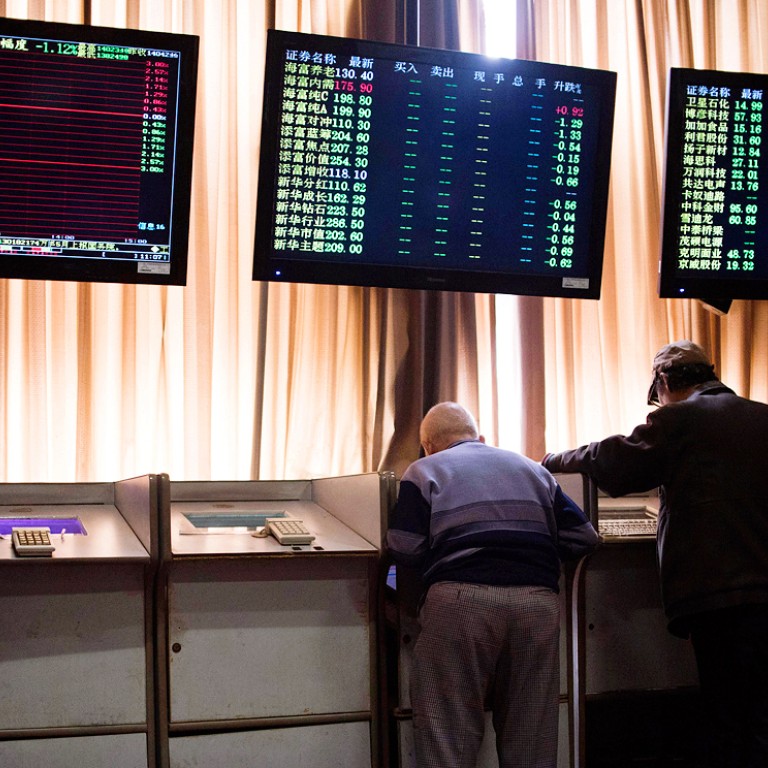
HKMA battles to keep Hong Kong currency peg stable as stock rally draws inflows
The Hong Kong Monetary Authority has been battling to keep the currency peg stable amid soaring hot money inflows during the past week’s market rally and doesn’t expect any let-up until the US raises interest rates.
The Hong Kong Monetary Authority has been battling to keep the currency peg stable amid soaring hot money inflows during the past week’s market rally and doesn’t expect any let-up until the US raises interest rates.
HKMA chief executive Norman Chan Tak-lam said yesterday it had injected a combined HK$30 billion and bought US$4.4 billion worth of US dollars in the past week to weaken the Hong Kong dollar.
“The HKMA has to intervene in the currency because there’s a lot of money flowing in from mainland China as well as from Europe and the US to invest in the stock market in Hong Kong, which reached record high turnover last week,” Chan told a media briefing.
He said the trend would continue, with fund flows to increase after the launch of the Hong Kong-Shenzhen stocks through train, which was expected soon.
“This will only end when the US raises interest rates, which may lead to capital outflow,” Chan said.
The HKMA has to intervene in the currency because there’s a lot of money flowing in from mainland China as well as from Europe and the US to invest in the stock market
Chan said the HKMA had bought US$110 billion worth of US dollars since 2008 to weaken the local currency because America’s monetary easing policy, introduced after the financial crisis, had led to capital inflows. More recently, the money had been flowing in from the mainland, following Beijing’s announcement two weeks ago that it would allow mainland funds to invest in the Hong Kong market.
Hang Seng Bank executive director Andrew Fung said the HKMA had not only been intervening during the day, but also at night, when the US market was open.
“This shows the recent inflows do not only come from the mainland but also from the US and European investors,” Fung said. “This is natural as the local market remains cheap while the poor economic figures in China recently have led to speculation that there will be further interest rate cuts or other measures to boost the economy.”
The Hang Seng Index nudged up 0.21 per cent, or 57.33 points, on Wednesday to finish at 27,618.22. Total turnover remained strong at HK$218.02 billion.
Hanging heavily over the market was a report on Wednesday morning that the mainland’s first-quarter gross domestic product expanded by 7 per cent year on year, the slowest expansion since the first quarter of 2009.
The Shanghai Composite Index dropped 1.24 per cent after earlier gains were reversed. But the H-share index, a gauge of mainland Chinese stocks listed in Hong Kong, rose 1.45 per cent.
Analysts at Citi said they remained overweight on mainland China with its reasonable stock valuations, noting that all key metrics including price-earnings and price-book ratios were below historical averages.
Among the five most-traded stocks were Tencent, which fell 2.23 per cent to end at HK$157.60, and Hong Kong Exchanges and Clearing, which dropped 0.14 per cent to HK$285.2. Both were among the star performers of the previous week that saw record turnover in the city’s stock market.
Energy and financial stocks rose. CNOOC and Sinopec both rose to three-month highs. Industrial and Commercial Bank of China rose to a six-year high, up 4.86 per cent to close at HK6.91. China Construction Bank chimed in with a 4.39 per cent gain to HK$7.84.
However, Macau shares were battered, with casino operator Galaxy Entertainment down 2.01 per cent to HK$36.55, and peer Sands China down 2.47 per cent at HK$33.60.


